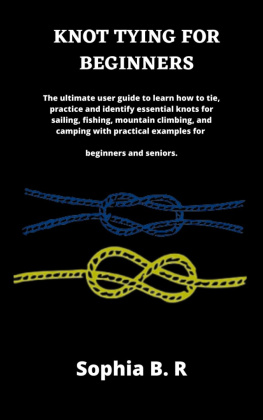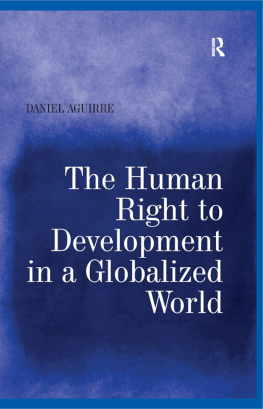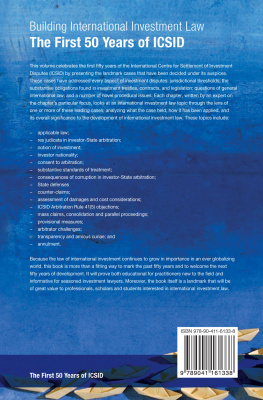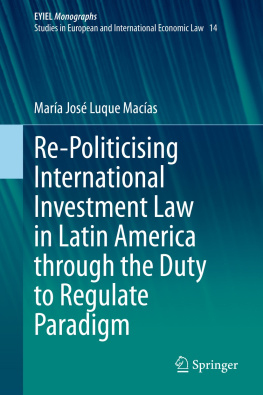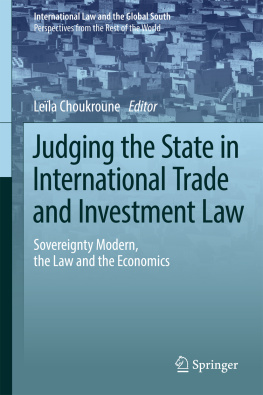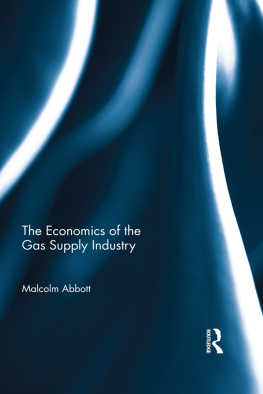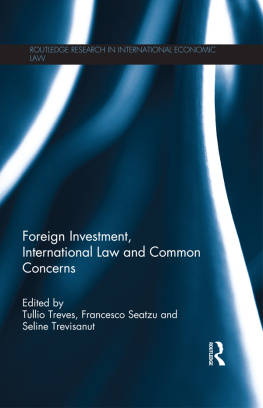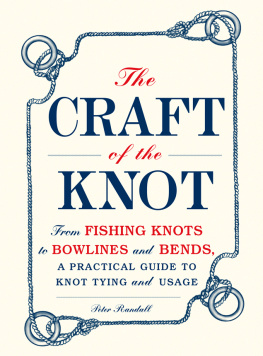Judge Knot
Anthem Frontiers of Global Political Economy
The Anthem Frontiers of Global Political Economy series seeks to trigger and attract new thinking in global political economy, with particular reference to the prospects of emerging markets and developing countries. Written by renowned scholars from different parts of the world, books in this series provide historical, analytical and empirical perspectives on national economic strategies and processes, the implications of global and regional economic integration, the changing nature of the development project, and the diverse global-to-local forces that drive change. Scholars featured in the series extend earlier economic insights to provide fresh interpretations that allow new understandings of contemporary economic processes.
Series Editors
Kevin GallagherBoston University, USA
Jayati GhoshJawaharlal Nehru University, India
Editorial Board
Stephanie BlankenburgSchool of Oriental and African Studies (SOAS), UK
Ha-Joon ChangUniversity of Cambridge, UK
Wan-Wen ChuRCHSS, Academia Sinica, Taiwan
Alica Puyana MutisFacultad Latinoamericana de Ciencias Sociales (FLASCOMxico), Mexico
Lonce NdikumanaUniversity of MassachusettsAmherst, USA
Matas VernengoBucknell University, USA
Robert WadeLondon School of Economics and Political Science (LSE), UK
Yu YongdingChinese Academy of Social Sciences (CASS), China
Judge Knot
Politics and Development in International Investment Law
Todd N. Tucker

Anthem Press
An imprint of Wimbledon Publishing Company
www.anthempress.com
This edition first published in UK and USA 2018
by ANTHEM PRESS
7576 Blackfriars Road, London SE1 8HA, UK
or PO Box 9779, London SW19 7ZG, UK
and
244 Madison Ave #116, New York, NY 10016, USA
Todd N. Tucker 2018
The author asserts the moral right to be identified as the author of this work.
All rights reserved. Without limiting the rights under copyright reserved above, no part of this publication may be reproduced, stored or introduced into a retrieval system, or transmitted, in any form or by any means (electronic, mechanical, photocopying, recording or otherwise), without the prior written permission of both the copyright owner and the above publisher of this book.
British Library Cataloguing-in-Publication Data
A catalogue record for this book is available from the British Library.
ISBN-13: 978-1-78308-790-7 (Hbk)
ISBN-10: 1-78308-790-0 (Hbk)
ISBN-13: 978-1-78308-791-4 (Pbk)
ISBN-10: 1-78308-791-9 (Pbk)
This title is also available as an e-book.
To Gail and Dale, who taught me when to judge and when to laugh it off.
CONTENTS
Figures
Tables
This book is about the obscure world of investment law. It is also about a journey: my own.
When I started writing this, I was coming off 12 years as a global justice advocate. Protests against the World Bank? Check. Marching against the Iraq War? Check. Loads of intemperate remarks about capitalism and corporations? You bet.
Despite our hard-fought campaigns, my advocacy coalition ended up on the losing side of congressional votes on US trade agreements that we worried would undermine US well-being and sovereignty. A regional trade deal with six Central American countries (2005), followed by bilateral ones with Bahrain (2005), Oman (2006), Peru (2007), Colombia (2011), South Korea (2011) and Panama (2011)each passed at the insistence of big business and presidents of both political parties, and over the howls of labor unions, environmentalists and consumer groups.
It was time for a reset. Back in 2002, I had completed a masters degree in development studies at Cambridge University. At the time, word was just breaking about a string of new cases under an obscure legal system known cryptically as investorstate dispute settlement, or ISDS, whereby multinational corporations were suing sovereign governments such as Argentina over various regulatory policies. As a kid, I had lived in Argentina, so this piqued my interest. I briefly considered doing a PhD then, but there were hardly any cases to study. Fast forward to 2012, and the number of lawsuits had piled up in the hundreds. Corporations were catching on to this new remedy.
I wanted to get to the bottom of whether this novel investment law mattered, and if so, how. That endeavor became my PhD dissertation (201216), which led me to reexamine long-held assumptions from my advocacy days. This book is an elaboration of that work, updated to include new chapters putting the research in a broader comparative context and taking account of the post-2016 changes in politics.
I could not have done any of this without the ongoing support of my loving friends and family. I thank foremost my wife, best friend and volunteer editor, Heather Boushey. She uprooted herself from a very productive think-tank career to work remotely alongside me in England for my course work and has helped me through the stress and exhilarations of this project with patience and love. My parents, Gail and Dale, brother Daniel and sister-in- law Emily Bunker were relentless encouragers, as was Heathers family.
I also thank the scores of arbitrators who took time to help me better understand their work. They fly to Washington, DC, and around the world to arbitrate, working from early in the morning until late at night. Despite such demanding hours, they took time from their grueling schedules to share perspectives with a graduate student not even in their field. Even if they do not agree with the conclusions I draw, I hope they find the outsider perspective informative as they contemplate the future of the system they helped build.
My supervisor Ha-Joon Chang was instrumental in shaping my research interests back when I was a masters student in 2001, and then encouraged me to return to Cambridge over a decade later to write down my strange ideas that fell between the gaps of what traditional disciplinary departments could offer. I thank him, Walter Mattli and Michael Waibel, who served on my viva committee and provided invaluable feedback. Lesley Dingle at the Squire Law Library and Diana Kazemi of the Centre of Development Studies provided valuable help navigating Cambridge resources. The Gates Cambridge Trust generously supported me throughout my PhD research, while Sarah Pray and the Open Society Foundations provided the boost of financial and moral support needed to take the manuscript and associated reports over the finish line from my perch at the Roosevelt Institute. In recent years, Roosevelt fellows have published Rewriting the Rules of the American Economy and Hidden Rules of Race; Im pleased to extend the institutionalist framework of those two books to the global economy.
My editor Ed Paisley read the entire manuscript several times and made it much better. Kevin Gallagher helped champion me at Anthem Press, where Abi Pandey, Tej Sood, Nisha Vetrivel and their teams doggedly ushered the manuscript through. Daniel Tucker and Kelsea Henson helped conceive the cover art. Pete Morelewicz swept in literally just hours before submission to help rescue me from my sorry attempts at amateur graphic design; his expert work on will be (I believe) among the central contributions of the overall project. I also thank the two anonymous peer reviewers who gave detailed comments.
I benefited tremendously from feedback from participants at the Institute for New Economic Thinkings Advanced Graduate Workshop in Bangalore in 2014; the seminars convened by Ha-Joon Chang and the Centre of Development Studies; Gates Cambridge Scholar symposia; the Cambridge Replication Workshop; the World Trade Institutes 2013 conference on the Role of the State in Investor-State Arbitration; the


